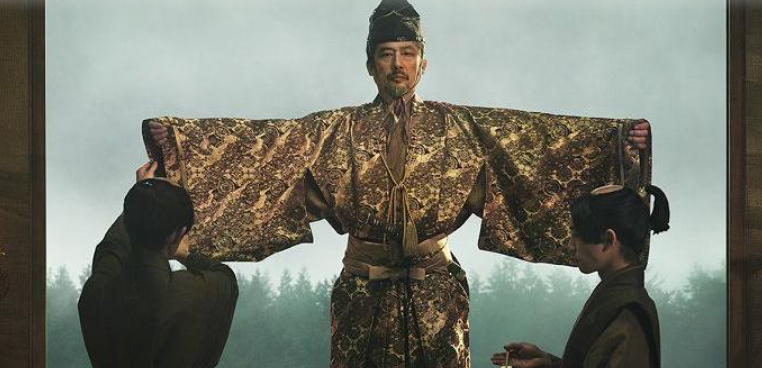Intricate feudal politics, a stranded ship lost at sea with a crew decimated by starvation and scurvy, a nation teetering on the edge of war, and the collision of diverse cultures leading to strange customs and perilous encounters – Shogun unfolds as the end of one era and the dawn of another. Set in tumultuous feudal Japan, the Catholic Portuguese allies find themselves at odds with the newly arrived English and Dutch Protestants, amidst breathtaking cinematography, exquisite costume design, and stellar acting.

While I haven’t delved into James Clavell’s 1,152-page book that serves as the basis for this new show, I’ve started it and made some progress. Instead of bypassing the source material or concentrating on comparing the adaptation, I’ve chosen to read alongside the weekly episodes on Hulu. This approach allows me to review the show without preconceived notions from the novel, offering a perspective that stands on its merit.
Given the length of the book, it’s not a swift read, and that’s perfectly fine. Sometimes, the allure lies in not knowing the source material intimately. For instance, my enjoyment of the live-action Avatar: The Last Airbender might have been greater without the backdrop of the animated original.
After watching the first episode of Shogun, I realized that FX and Hulu had released the initial two episodes simultaneously. However, my commitment to reviewing each episode individually means that this post focuses solely on the series premiere, “Anjin,” with a subsequent review for the second episode to follow. Weekly recap/reviews will be a regular feature on this blog, and I’m genuinely excited about it, as this series has rekindled my enthusiasm amid recent disappointments.
Let’s dive into the essentials without an extensive recap. “Anjin” in Japanese translates to “pilot,” referring to one of the central protagonists, John Blackthorne (Cosmo Jarvis). It may also carry a dual meaning, alluding to the other chief protagonist, Lord Yoshi Toranaga (Hiroyuki Sanada), steering Japan toward a better future. The odds are stacked against both men, who eventually converge as the series premiere concludes.
The year is 1600, as indicated by a title card at the episode’s start, efficiently dispensing with setup exposition. The Portuguese held a lucrative trade relationship with Japan, accompanied by the spread of Christianity. Blackthorne, an Englishman working for the Dutch, aims to locate Japan and challenge Catholic dominance. The Protestants seek a share of the pie, but the journey is arduous, resulting in lost ships and men. Only a handful, including Blackthorne, survived, found, rescued, and promptly imprisoned by the Japanese.
Both groups label each other as “barbarians” or “savages” due to stark differences – the sailors unkempt and wild, the Japanese adhering to customs such as seppuku. In a disturbing scene, Tadayoshi, in the service of Lord Toranaga, vows to commit ritual suicide and end his lineage, including killing his baby. Despite this, it’s not the most shocking event in the series premiere, leaving viewers eager for more.





